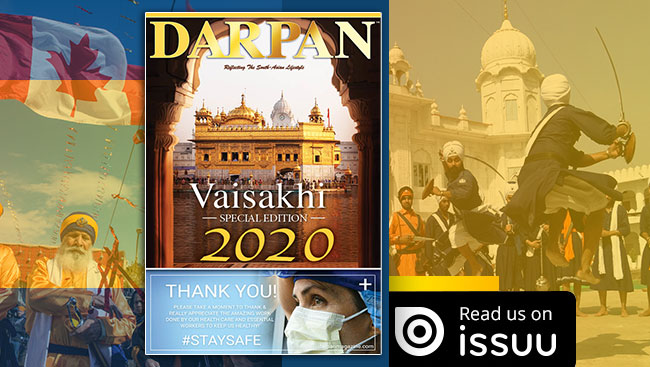The British had dedicated the Saragarhi memorial to the heroism and valour of the 21 Sikh men who made the supreme sacrifice while defending the desolate outpost in 1897.
The world is going through a vast change and the rapid advancement of technology has made it challenging to find our neutral state of mind. Various methods through scientific, psychological and spiritual reasoning are collectively emphasizing meditation to assist in a holistic approach to human wholesomeness and balance.
The Battle of Saragarhi was fought between 21 Sikhs soldiers of the 31st Sikh Regiment of the British Indian Army, and about 10,000 Afghan tribesmen on September 12, 1897, on the Samana Ridge, in present day Pakistan. The 21 Sikh soldiers, led by Havildar Ishar Singh were tasked with defending the outpost of Saragarhi, which formed three signal posts along with Fort Lockhart and Fort Gulistan, situated back then in the North West Frontier Province of British India. The British had partially succeeded in getting control of this volatile area, but tribal Pashtuns continued to attack British personnel from time to time. Thus a series of forts, originally built by Maharaja Ranjit Singh, the ruler of the Sikh Empire (1799-1849), were consolidated.
Due to the forts not being visible to each other, Saragarhi was created midway, as a heliographic communication post situated on a rocky ridge, and consisted of a small block house with loop-holed ramparts and a signalling tower. A general uprising by the Afghans began in early 1897, and between 27 August and 11 September many vigorous efforts by various tribesmen to capture the forts were thwarted by the 36th Sikhs.

The Orakzais were joined by the Afridi tribe thus swelling their numbers to more than 10,000. The mass attack came on Saragarhi on September 12, the 21 strong detachment fought one of the most unequal engagements in the history of warfare. Instead of withdrawing to one of the other posts, the Sikhs decided to remain in an effort to maintain communication between the two forts. There were fierce onslaughts by the 10,000 Orakzai and Afridi tribesmen. The outnumbered defenders returned the fire in a most determined manner. After a series of abortive attempts, the tribes managed to reach the wall of the post by using an ingenious method. Effecting a breach, they came face to face with the brave Sikhs, most of whom had been wounded with the fierce battle lasting nearly six hours. Although seen a Afghan victory, the Sikhs fought long enough to allow the British to rush reinforcements and was later a subsequent strategic victory for the British Empire, despite the Afghans having lost nearly 600 men in the battle.
The British had dedicated the Saragarhi memorial to the heroism and valour of the 21 Sikh men who made the supreme sacrifice while defending the desolate outpost in 1897. It is located about 90 km south west of Peshawar, now in Kohat District and is a five hour drive due to the tough terrain and bad conditions of the roads. The 12 feet high memorial, built in grey stone, stands at a height of 6,300 feet above sea level. Situated amongst the beautiful Tirah Mountains, the memorial’s condition is relatively good, although the main structure needs a facelift but the original plaque, inscribed with the names of the 21 Sikh soldiers is proudly displayed on its northern wall. There is a permanent Pakistan army garrison that is stationed at nearby Fort Gulistan outpost, who along with the local Sikhs of Hangu, maintains the memorial. They have also constructed a Sikh Gurdwara and garden to the immortal memory of the 21 Sikhs.
The 21 Sikh soldiers who died in the Battle of Saragarhi were from the Majha region of Punjab and were posthumously awarded the Indian Order of Merit, at that time the highest gallantry award which an Indian soldier could receive. The corresponding gallantry award was the Victoria Cross. The battle is considered as one of history’s greatest last stands; it has been listed as one of the top eight battles of bravery by UNESCO.

ABOUT THE AUTHOR
Bobby Singh Bansal is an author, historian and documentary filmmaker based in London. His works on Sikh Heritage and Culture have been widely recognised by various institutions and government bodies in Pakistan and India. His forthcoming publication, The Punjab Chiefs - The Lost Glory of the Punjab Aristocracy is releasing in summer of 2020.







